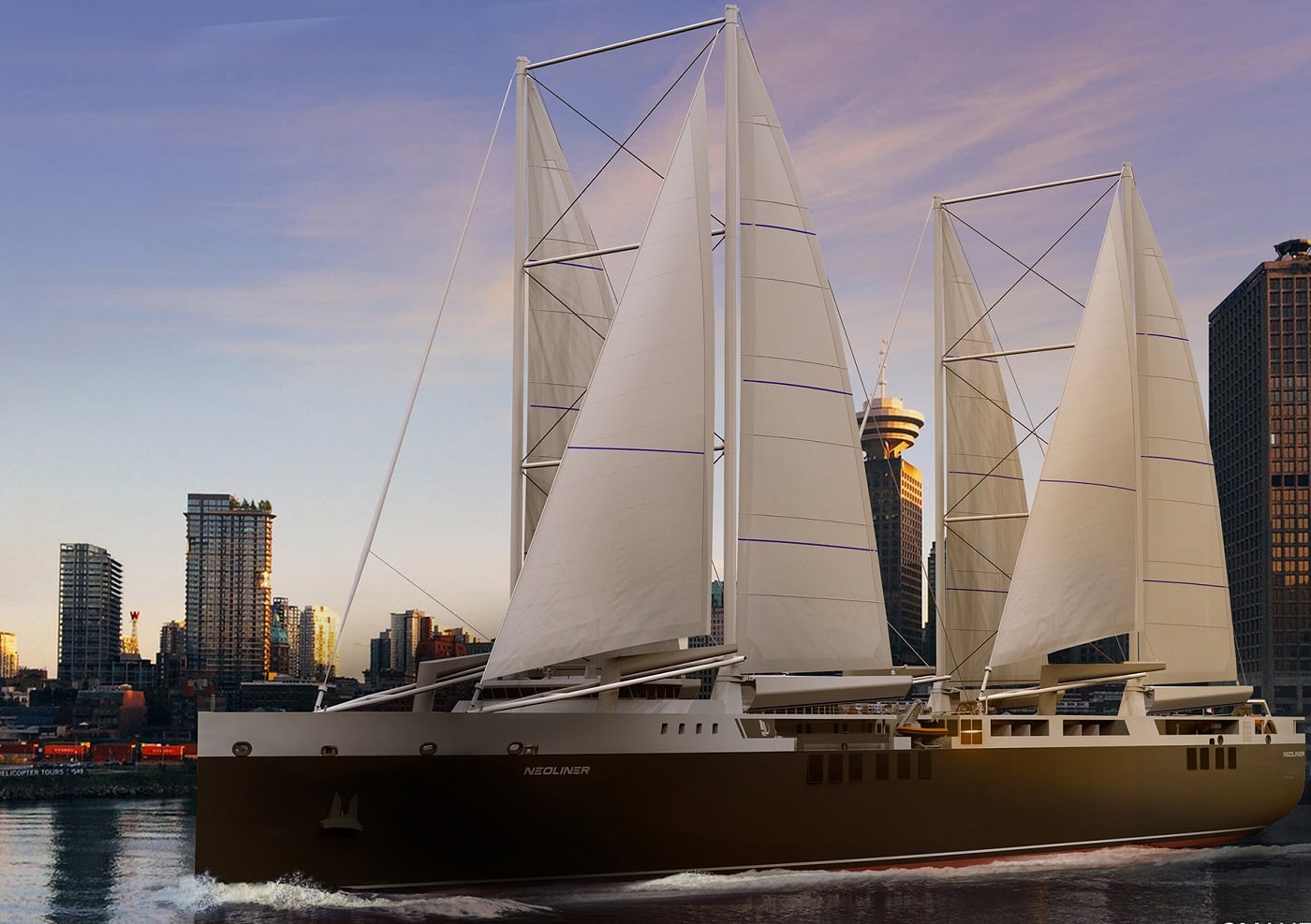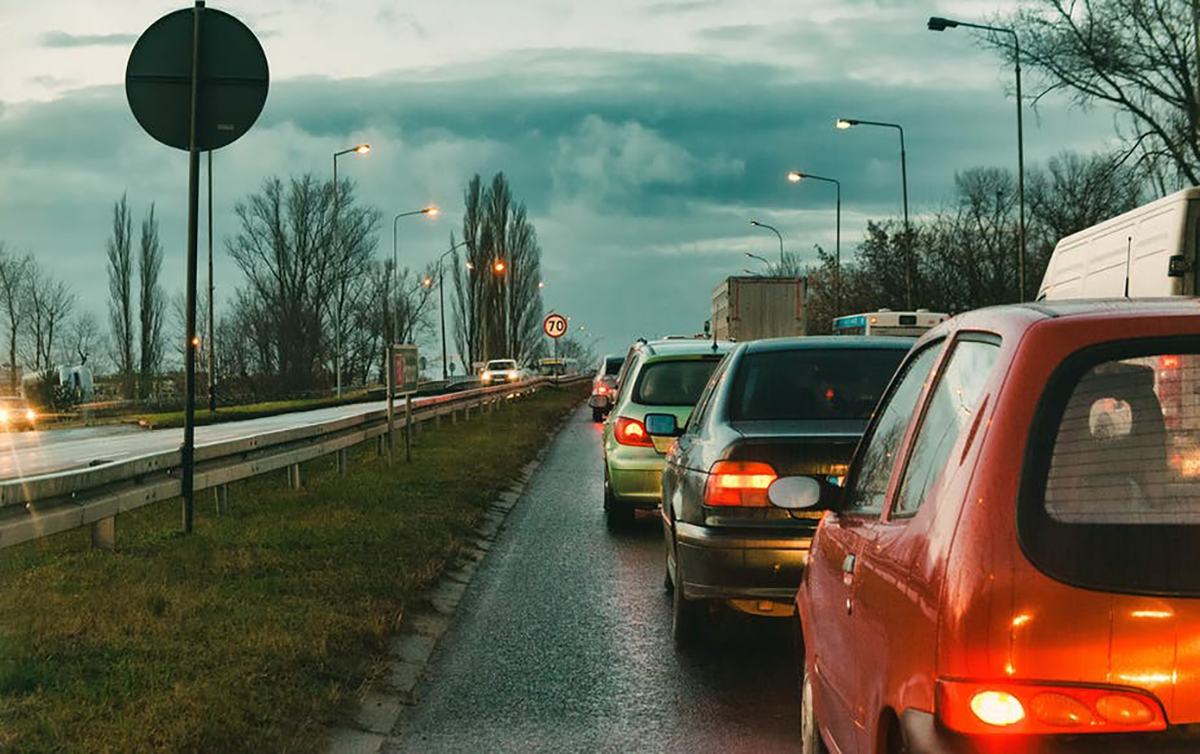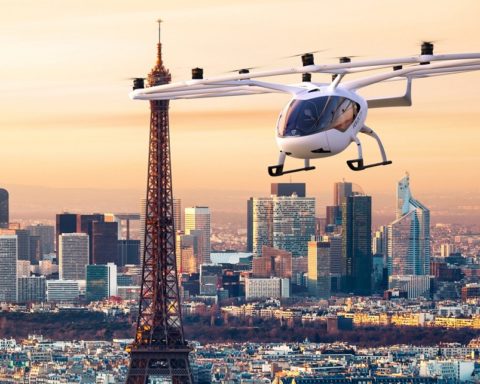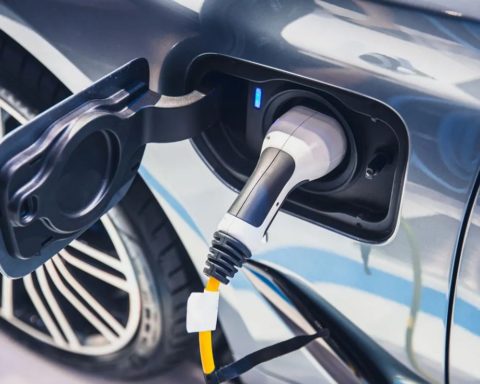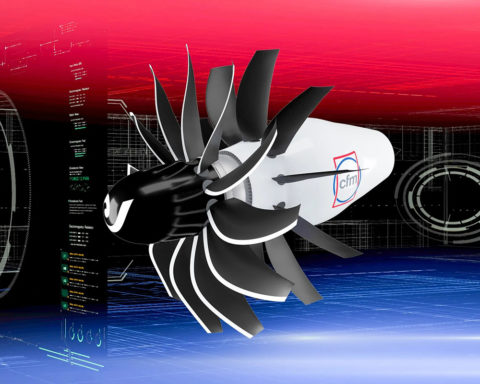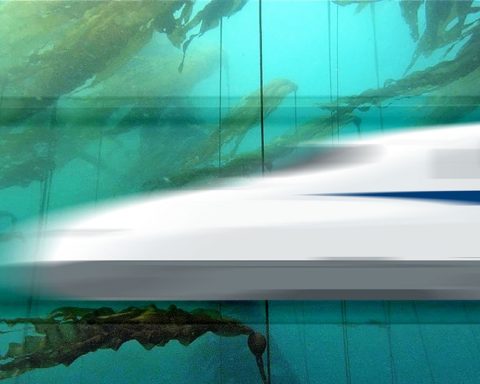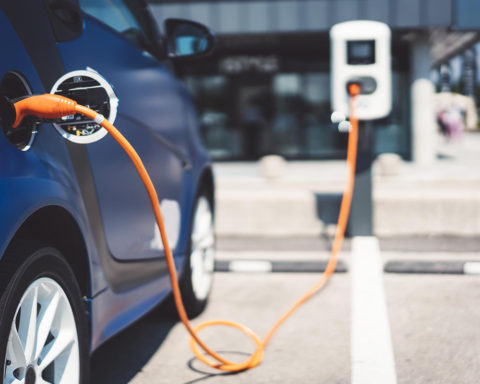Le fret à la voile est en pleine expansion. Alors que le fret maritime traditionnel représente près de 3% des émissions de CO2 en Europe (1), avec plus de 90 000 navires marchands en circulation, une startup française, NEOLINE, a trouvé une réponse innovante au défi environnemental universel tout en restant dans un cadre industriel et compétitif, en utilisant une énergie 100% renouvelable, propre et gratuite : le vent.
En aurons-nous bientôt fini avec ces cargos gigantesques qui polluent océans, air, ports et santé humaine ? Pourtant, le transport de marchandises sur l’eau est aussi vieux que l’invention des bateaux. Et la flotte marchande mondiale croît comme le volume des marchandises consommées à travers toute la planète.
Des logiciels permettent déjà de calculer en fonction de la météo, des marées et des courants des itinéraires plus efficace où ces navires utiliseraient le courant et le vent pour se faire porter, et ainsi être moins polluants et moins consommateurs en énergie. Des ingénieurs et prospectivistes ont imaginé d’adapter à de grands navires le principe du SkySails ou “kites”11 pour économiser 10 à 35 % de carburant. Preuve est bien là que la voile pourrait faire un retour en force.
Le projet NEOLINE, lui, va construire des cargos équipés de gréements duplex (4 mâts) avec 4200 m² de voiles qui constitueront la propulsion principale du navire, permettant de viser 90% de réduction de consommation de carburant et donc des émissions associées.
A l’origine de ce projet, se trouve l’engagement d’un groupe d’officiers de la Marine Marchande fédérés par Michel Péry, commandant de navires rouliers, convaincus que les enjeux climatiques allaient conduire le monde du shipping à envisager de nouveaux modes de propulsion pour améliorer leurs performances environnementales.
Ce qui les rassemble : la conviction que la voile de travail est la seule solution vraiment sobre, immédiatement disponible et suffisamment puissante pour propulser des navires de charge.
Au terme de quatre années d’un travail de réflexion et de conception consacrées par le dépôt d’un brevet international, la société NEOLINE voit le jour en 2015, pour relever le défi des enjeux environnementaux.
Dans un marché d’échanges mondialisé hautement concurrentiel et face à l’accélération des exigences environnementales et règlementaires, le transport maritime doit entreprendre un effort inédit d’adaptation de ses modes d’exploitation.
Une innovation majeure face aux enjeux environnementaux
En effet, ce type de transport représente à lui seul 7% de la consommation mondiale de pétrole ; donc tout particulièrement concerné par la réduction des émissions polluantes et à effet de serre et ce, d’autant plus que les carburants utilisés à ce jour sont très polluants en raison notamment de leur teneur en dioxyde de soufre (SOX). Malgré les nouvelles réglementations annoncées, une nouvelle projection de James Corbett estime que, en 2020, le fuel marin sera toujours responsable d’environ 250 000 morts et 6,4 millions de cas d’asthmes chez les enfants chaque année.
Par ailleurs, la raison majeure pour laquelle les navires polluent autant est l’utilisation du fuel lourd comme carburant. D’après le rapport 2017 de l’ICCT, en 2015, l’ensemble des navires qui sillonnaient les océans ont contribué à environ 2,6 % des émissions planétaires de CO2 (932 millions de tonnes de CO2) ; en 2018, nous en étions à 4% des émissions de CO2 mondiales.
Selon différentes sources, la part du transport maritime dans les émissions varie de 5 à 10 % pour les oxydes de soufre (SOx) ; de 15 à 30 % pour les oxydes d’azote (NOx) et peut monter jusqu’à 50% des particules fines dans certaines zones côtières. Gourmands en énergie, chacun de ces monstres flottants génèrent autant de pollution aux particules ultra-fines qu’un million de voitures. Peu connue du grand public, cette pollution porte atteinte à la santé des habitants des villes portuaires.
Pourquoi ne pas profiter d’une lecture illimitée de UP’ ? Abonnez-vous à partir de 1.90 € par semaine.
Face à cet enjeu le Comité de la protection du milieu marin de l’Organisation maritime internationale (OMI) a enfin adopté un texte fin 2019 qui propose au secteur de réduire les émissions de gaz à effet de serre des navires d’au moins 50 % d’ici à 2050 (par rapport à 2008). Il fixe aussi à 2023 la date butoir de sa stratégie révisée en matière d’émissions de CO2.
Plus, immédiatement, ils doivent satisfaire, depuis le 1er janvier 2020, à une réduction de la teneur en soufre dans les carburants qui passera de 3.5% à 0.5%. Avec cette nouvelle norme conjuguée à l’augmentation des prix du pétrole, les armateurs s’attendent à une augmentation exceptionnelle de leur budget carburant.
Quant aux solutions d’adaptation des navires (gigantisme, slow steaming, scrubbers, GNL, …) elles sont coûteuses, restent limitées et engendrent, pour certaines, de nouvelles formes de pollution.
LIRE DANS UP’ : Marine marchande toutes voiles dehors ! Le retour.
Dans ce contexte la solution retenue par NEOLINE de recourir à la propulsion éolienne, fondée sur l’exploitation d’une énergie inépuisable et propre, prend tout son sens.
Les industriels croient en eux
C’était en novembre 2018. La startup NEOLINE signait un premier partenariat avec le Groupe Renault, à l’occasion des Assises de la Mer. Objectif : développer un service de transport maritime durable grâce à la propulsion éolienne, et contribuer ainsi au pilotage environnemental de sa chaîne logistique, alors que près de 60% du transport de pièces et véhicules du Groupe sont effectués par voie maritime.
Pour apporter une solution de transport maritime à la hauteur des enjeux environnementaux actuels, NEOLINE développe des services à dimension industrielle de fret à la voile, plus propres, sur mesure et compétitifs, correspondant aux besoins logistiques des chargeurs.
Ce projet d’armateur a permis de concevoir un cargo capable de réduire jusqu’à 90% des émissions de CO2, comparé à un cargo traditionnel sur un trajet équivalent, en ayant recours à une propulsion éolienne principale associée à une vitesse économique raisonnée à 11 nœuds et à l’optimisation du mix énergétique.
Un premier navire de 136 mètres de long et de 4200 mètres carrés de voilure, nommé « Neoliner » sera construit par la société de Saint-Nazaire Neopolia Mobility, combinant de façon innovante des solutions techniques issues du transport maritime, mais également de la voile sportive, de manière à permettre un transport à la fois performant en termes logistiques et économiques, tout en étant d’une sobriété exemplaire. L’ambition est de construire deux navires sur ce modèle, avec un objectif de mise en service en 2020 – 2021, sur une ligne-pilote qui reliera St-Nazaire, la côte est des Etats-Unis et Saint-Pierre & Miquelon.
Une première dans le maritime : EDF et NEOLINE viennent de signer en décembre dernier un accord pour valoriser les économies d’énergies réalisées par la propulsion vélique principale de ses cargos voiliers. Il s’agit d’un accord spécifique de délivrance de Certificats d’Economie d’Energie (CEE) qui confirme et valorise la grande performance environnementale des futurs navires de commerce à voiles du jeune armateur.
Sur la base du « Neoliner », le premier navire pilote de la startup, EDF a réalisé des études avec sa R&D pour quantifier les économies d’énergie réalisables : le modèle de navire à propulsion vélique principale de NEOLINE permettra ainsi d’économiser 600 000 MWh cumac sur quinze ans, soit la production de trois éoliennes de 6 MW pendant dix ans (2) ou la consommation en énergie d’une ville de 9 000 habitants pendant dix ans.
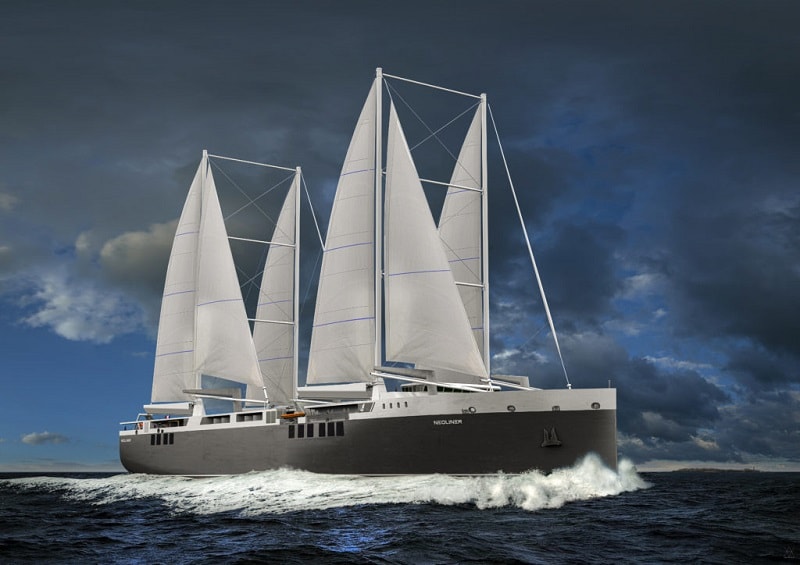
Pour lutter contre la désinformation et privilégier les analyses qui décryptent l’actualité, rejoignez le cercle des lecteurs abonnés de UP’
« Neoliner » trouve son investisseur
Le groupe familial Sogestran, ainsi que sa filiale la Compagnie Maritime Nantaise -MN, accompagneront NEOLINE pour le financement de ses premiers navires et la mise en place opérationnelle de la ligne-pilote. Ce rapprochement des deux armateurs nantais souligne l’audace présente sur le territoire Ligérien et renforce son potentiel industriel et maritime.
Pour NEOLINE, l’arrivée d’un acteur de premier plan du monde maritime et fluvial lui permet de bénéficier d’une expertise reconnue pour le lancement de ses cargos voiliers innovants à propulsion principale vélique, dont Sogestran sera également l’un des investisseurs de référence.
Pour la Compagnie Maritime Nantaise -MN, en tant que partenaire opérationnel de NEOLINE, cette association permettra le développement de ses activités de gestion et d’exploitation de navires pour le compte d’un tiers, avec une forte ouverture à la transition énergétique.
Pour le groupe Sogestran, cet investissement s’inscrit dans le cadre de son ambition maritime car l’association avec NEOLINE permettra au groupe d’accélérer l’amélioration énergétique et environnementale de ses activités, en même temps que son positionnement autour des valeurs auxquelles le groupe est déjà attaché.
Pointé du doigt pour son impact sur l’environnement, le secteur du transport maritime fait en effet face aujourd’hui à une intense pression réglementaire et sociétale pour accélérer sa transition énergétique.
Le modèle d’armateur de NEOLINE, basé sur la performance énergétique avec l’utilisation de l’énergie du vent comme propulsion principale de ses navires, des équipages formés et impliqués associés à des systèmes avancés de routage météorologique, peuvent viser les 90% de réduction de consommation et donc d’émissions polluantes associées. Ces navires seront également en mesure de tester un ensemble de technologies complémentaires pour tendre à moyen-terme vers le Zéro émission, objectif affiché par la France d’ici 2050 dans le plan climat 2017.
Fort du soutien de ces acteurs de référence tels que le Groupe Renault, Manitou Group et le Groupe Beneteau, qui ont démontré la pertinence logistique et économique du nouveau service pour les industriels de la Région, NEOLINE prévoit donc de passer commande de « Neoliner » pour une mise en service de la ligne-pilote au plus tôt.
Pascal Girardet, Président du groupe Sogestran et Président de la Compagnie Maritime Nantaise – MN, déclare « contribuer à l’émergence d’un nouveau modèle économique et écologique dans le transport maritime, dont nous sommes convaincus qu’il est porteur d’avenir. »
Pour Jérôme Navarro, Directeur Général de la Compagnie Maritime Nantaise – MN, il a « l’ambition d’être les pionniers dans le développement de nouvelles lignes maritimes plus écologiques ».
Quant à Michel Péry, Président de NEOLINE, il se dit « particulièrement heureux que le groupe Sogestran nous rejoigne en tant qu’associé structurant, avec qui nous partageons de fortes valeurs entrepreneuriales et éthiques. L’appui de ce groupe familial réputé sera un atout déterminant pour la mise en place rapide de notre service maritime innovant, environnementalement exemplaire et économiquement solide. »
Comme l’explique René Trégouët, Sénateur honoraire, Fondateur du Groupe de Prospective du Sénat et contributeur souvent invité de UP’, « Confronté au défi du changement climatique et de la protection de l’environnement, le secteur des transports va permettre à la marine à voile de vivre un nouvel âge d’or, et la force du vent va contribuer de manière décisive à donner à l’Humanité les moyens de sortir définitivement de l’ère des énergies fossiles. Notre pays, grande puissance maritime, doit évidemment prendre toute sa place dans cette extraordinaire mutation technologique et économique qui s’esquisse et va traverser ce siècle. »
Il est grand temps d’« Être avec l’élément », d’entrer dans une relation de duo et de syntonie, d’alliée et de complice (Guérard, 2006) avec la mer. Comme l’a bien souligné Bachelard, « l’eau n’est pas toujours une adversité surmontée, une victoire orgueilleuse remportée sur un élément adverse, une joie mâle de perforer la réalité » (3). Le retour de la marine marchande à voile se situe donc sur un versant non offensif, plus écologique, sans relation de domination, de possession de la mer mais dans un échange de services de qualité. Contrairement à une volonté de puissance, d’exploitation ou de colonisation, doit s’instaurer une relation de participation, d’adhérence, de synergie et de convergence, selon un « principe d’insertion » cher à Simondon (4).

(1) Source : IEA
(2) Source : Autorité environnementale Conseil général de l’Environnement et du Développement durable
(3) Gaston Bachelard, 1942
(4) Gilbert Simondon, « L’art et le monde »

